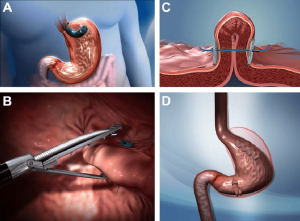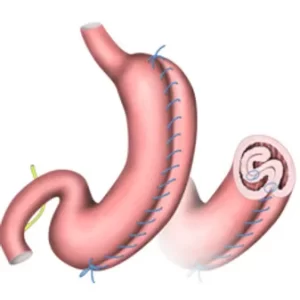
In the ever-evolving landscape of weight loss interventions, gastric plication has emerged as a procedure garnering attention. However, beneath the surface, there lies a host of concerns and limitations that raise questions about its effectiveness and long-term viability. In this comprehensive exploration, we will delve into the intricacies of gastric plication and dissect the reasons why it may not be the best option for those seeking enduring weight reduction solutions.
Gastric plication, also known as laparoscopic gastric imbrication or greater curvature plication, is a relatively novel bariatric surgery that involves folding and suturing the stomach to create a smaller, tubular structure. Unlike other weight loss surgeries such as gastric bypass or sleeve gastrectomy, gastric plication does not involve the removal of a portion of the stomach or rerouting of the digestive tract. Instead, it relies on altering the stomach’s shape to limit its capacity.
Advocates of gastric plication highlight its minimally invasive nature, reduced risk of complications, and absence of foreign objects like gastric bands or staples. Additionally, the procedure is reversible, theoretically allowing patients to revert to their original stomach anatomy if necessary. These factors contribute to its appeal among individuals seeking weight loss interventions with fewer potential downsides.
One of the fundamental drawbacks of gastric plication is the scarcity of long-term data regarding its efficacy and safety. While short-term studies may showcase promising results, the lack of extended follow-up raises concerns about the sustainability of weight loss and potential complications that may arise over time. Comparatively, more established procedures like gastric bypass and sleeve gastrectomy have a more robust track record in terms of long-term success.
The outcomes of gastric plication vary widely among patients. While some individuals experience significant weight loss, others may find their results less impressive. The unpredictability of these outcomes makes it challenging for both patients and healthcare providers to determine the procedure’s reliability as a consistent weight loss solution.
While gastric plication is generally considered less risky than some other bariatric surgeries, it is not without its complications. Patients may face issues such as leakage, bleeding, or infection, albeit at lower rates than more invasive procedures. Additionally, the potential for the stomach to revert to its original shape over time poses a risk of diminished effectiveness.
Unlike gastric bypass, which not only restricts the stomach’s capacity but also alters the digestive process, gastric plication primarily focuses on reducing volume. This limited impact on metabolic changes may result in a less profound effect on weight loss and the associated metabolic benefits compared to more comprehensive procedures.
Weight loss surgeries often serve as a means to manage or alleviate obesity-related comorbidities such as type 2 diabetes and hypertension. However, the effectiveness of gastric plication in addressing these conditions remains uncertain, and its impact on comorbidity management may fall short of expectations compared to other established procedures.

Don’t forget to follow us in all our social media.
– Youtube
– Instagram
– Tiktok
We will provide you with immediate follow-up!
In order to offer you the method that best suits your needs, it is crucial for us to have knowledge of your medical history.
Please complete the following detailed health questionnaire with as much information as possible.
This will help us get to know you better.
©2023 Dr. Luis Pasten | Overweight Reduction Center | All Rights Reserved.